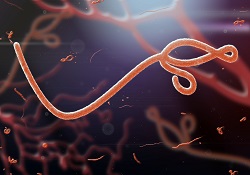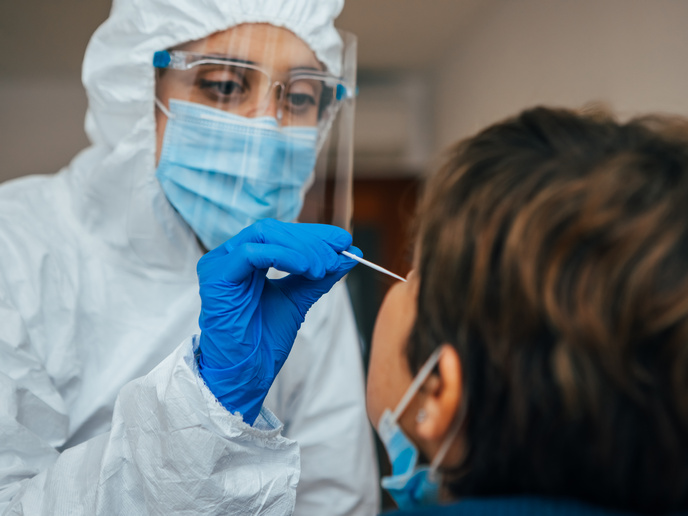A repurposed drug for a new disease: The case of Ebola
In 2014, the world witnessed the deadliest EBOV outbreak in history with the number of cases vastly exceeding previous outbreaks combined. The need for intensive research efforts towards the development and screening of mitigating and control strategies were highlighted. The EU-funded REACTION(opens in new window) project was a worldwide effort of experts in the field that focused on the antiviral drug Favipiravir as a means of treating EVD. The rationale was to develop an immediate response strategy against the current crisis and prevent the further spread of the epidemic. Favipiravir has proven activity against many RNA viruses in vivo and in vitro, including EBOV. It works by inhibiting viral gene replication within infected cells to prevent propagation, indicating that it could be administered against pandemic influenza and potentially against EVD. Furthermore, as project co-ordinator Prof. Herve Raoul explains, “Favipiravir has been approved in Japan to treat influenza with a good safety profile and it was available in large quantities, making it a good candidate to use in patients.” Efficacy of Favipiravir against EBOV The REACTION consortium tested the efficacy of Favipiravir against EBOV mortality as well as the feasibility and acceptability of an emergency trial in the context of a large Ebola outbreak. The REACTION clinical trial was the largest clinical trial performed during the epidemics, with 126 patients enrolled between November 2014 and April 2015. Favipiravir had a good tolerance profile but did not demonstrate a strong antiviral efficacy, possibly due to suboptimal dosing regimens. In parallel with the clinical trial, REACTION developed new protocols to identify the most efficient regimen for drug administration. These protocols, where the drug administration is intravenous and is initiated prior to infection, were tested in a non-human primate model of EVD. The impact on viral load, immunological response, virus evolution and survival was evaluated. “Understanding on a biological and molecular level the viral and cellular responses to treatment is of utmost importance,” continues Prof. Raoul. Experiments in the non-human primate model of EVD demonstrated the anti-EBOV efficacy of Favipiravir, and improved our knowledge of its pharmacokinetics at high doses. At specific concentrations, the drug significantly reduced viral replication and improved survival. Importantly, these experiments provided substantial knowledge to create an optimised treatment protocol for future EBD outbreaks and highlight the added value of NHP models. Future studies in healthy volunteers will be needed to test the tolerance of these optimised dosing regimens and guide their use in future outbreaks. Society mobilisation during EBOV outbreak During REACTION, it became evident that a community mobilisation strategy in clinical research is necessary in emergency situations. The scientific teams gained substantial experience in collaborating with local authorities to set up a clinical trial during the outbreak. Overall, researchers observed that the local community responded well to the testing of experimental treatments and running of clinical trials. However, they noticed that the contribution of caregivers to patient care not only goes unrecognised but they are often excluded from the rest of the community due to fear of disease spreading. Actions to educate the public on caregiver help and EBOV infection are paramount to avoid misconceptions and panic during outbreaks. Prof. Raoul envisages, “the administration of Favipiravir in conjunction with other modalities for improved clinical outcome.” Overall, the encouraging results of the REACTION initiative strongly reinforce the power of collaborative work as well as increase the confidence in inflicted areas that therapy against Ebola is possible.







